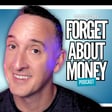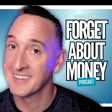
🏖️ VTSAX and Chill: JL Collins Simplifies Wealth Building for Everyone💰
Subscribe and Watch on YouTube
Today, we're with JL Collins, the Godfather of Financial Independence (FI), discussing the allure of the VTSAX and chill strategy! 🌊💰 🚀
🔑 In this episode, JL Collins unpacks the simplicity and efficiency of VTSAX and Relax, showcasing the power of low-cost index funds in the pursuit of financial freedom. Forget market timing - it's all about the long game! 🎯
Books by JL Collins:
How I Lost Money in Real Estate Before it was Fashionable
🌟 What We Cover: The unexpected success of "Simple Path to Wealth." How investing can be simple yet effective. The wisdom of passive index funds for wealth accumulation. Comparing index funds with stock picking. The role of fees, tax efficiency, and compelling storytelling in finance.
JL Collins shares anecdotes, laughs, and lessons, making this a must-listen for anyone on their financial independence journey. From the importance of VTSAX in a 401k plan to Warren Buffett's endorsement of index funds, we've got it all! 📘
📚 Long Summary: Dive into the details of how JL Collins champions the VTSAX and chill strategy. We explore the low-cost index funds route, emphasizing their efficiency in wealth accumulation and the vital role of fees and tax efficiency.
Discover how a simple approach to investing can lead to significant wealth, backed by the historical performance of the S&P 500 index.
Listen to the Forget About Money Podcast wherever you listen to Podcasts. YouTube: @ForgetAboutMoneyPodcast
Socials: @forgetaboutmoney
#VTSAX #FinancialIndependence #InvestingSimplified #JLCollins #SimplePathToWealth #IndexFunds #WealthBuilding #PassiveInvesting #LowCostIndexFunds #MarketTiming #SAndP500 #4PercentRule #ExpenseRatios #WarrenBuffett #FinancialWisdom #InvestmentStrategy #FIREmovement #VTSAXandChill #IndexInvesting #PersonalFinance

